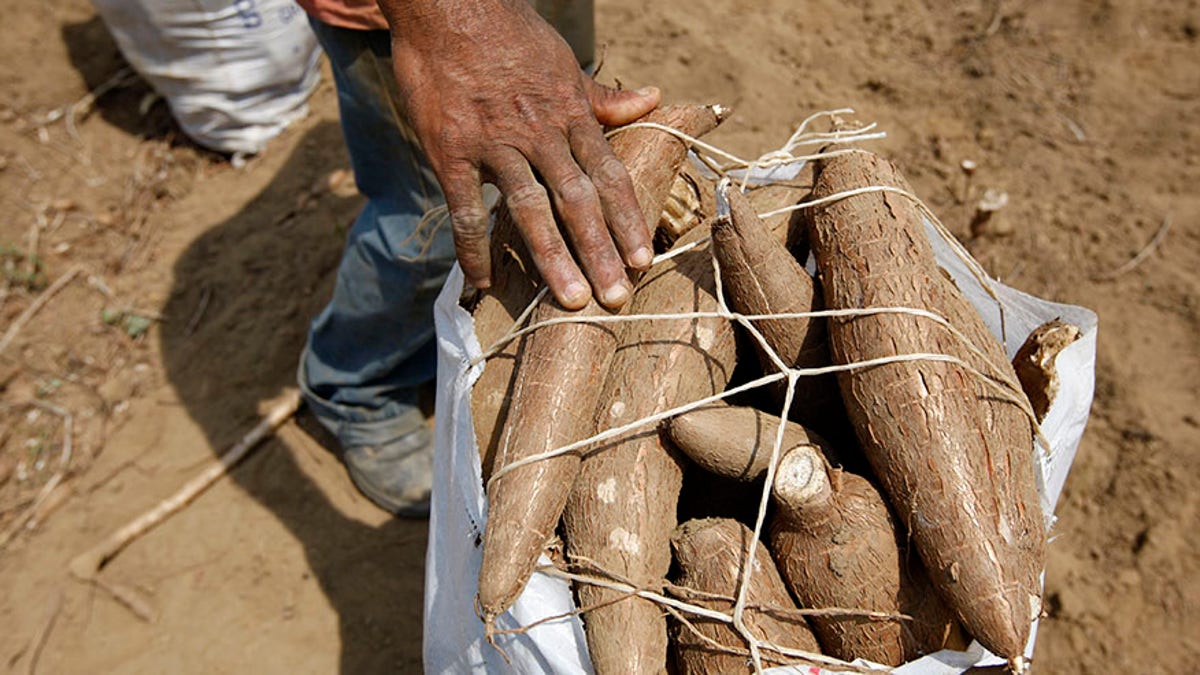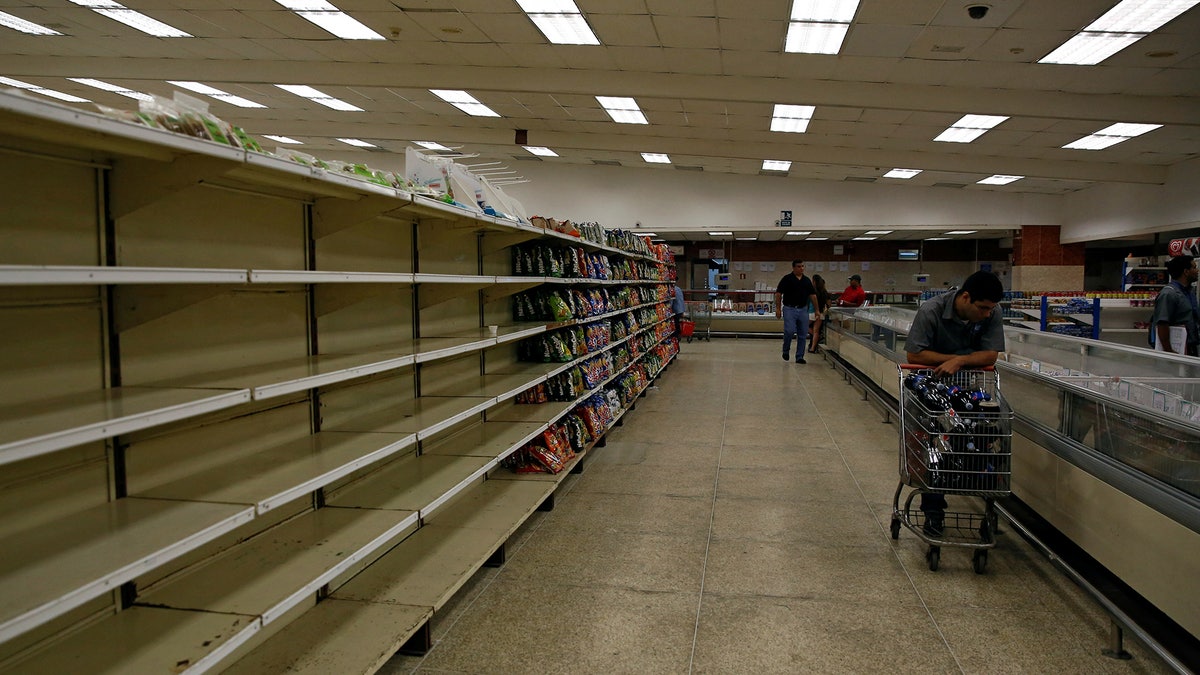
A farm worker collects cassava at expropriated farm "El Charcote" in central Venezuela. (Reuters)
CARACAS, VENEZUELA – Tulio Linares saw four of his relatives and a neighbor die one by one in Venezuela. It all happened within a week, following a family meal where they had ingested one of the few staples that are still available and affordable in the starved nation: the starchy yucca o cassava.
The explanation came in the autopsies’ results. The Linares and their friend had ingested the wrong kind of yuca, the so-called bitter yucca, which is inadvertently being sold in the street as sweet yuca. The two roots are almost undistinguishable, yet one is banned from the market because it contains a component - hydrocyanic acid – that becomes poisonous if not properly processed.
VENEZUELA MILITARY TRAFFICKING FOOD AS COUNTRY GOES HUNGRY
The difficulty to set them apart is taking lives. Unofficial reports count at least 29 yuca-related deaths since October, including a 2-year-old girl last week. Dozens have been intoxicated to different degrees.
The sweet version of the tuber has become a popular option for the lower classes and even Mc Donald's is using it since 2015 as a replacement for potato chips.

People buy food and other staple goods inside a supermarket in Caracas, Venezuela June 30, 2016. (Reuters)
According to the 2016 Living Conditions Survey, one of the more noticeable changes in food patterns from the previous year is proteins being replaced by vegetables and tubers. In 2015, Venezuelans predominantly bought flour, rice, bread and pasta, chicken and meat — all those now in the luxury category for the vast majority.
So the deadly yuca is a matter of great concern, especially because it is sold by untraceable unknowing individuals who are just trying to make a buck.
THOUSANDS OF VENEZUELANS RISK LIFE IN MAFIA-INFESTED ILLEGAL MINING
A member of the Linares family bought three kilos of the deadly cassava from a street vendor in a popular Caracas neighborhood last month. She paid 1000 bolivars ($1.4) per kilo.
Within hours, the family members started with severe stomach ache and vomiting. Jesús María Cruz, 53, Don Tulio’s brother-in-law, was the first to die. Doctors didn’t link the case to yuca poisoning, ruling instead convulsive syndrome and cerebral edema as cause of death.

In this Oct. 31, 2016 photo, the Marval family fish at night in the sea, off Punta de Araya, Sucre state, Venezuela. Sucre was the epicenter of food riots that swept through the country in June, and Punta de Araya families got through the summer by eating "dog soup," a broth made from seawater and the small fish that are usually thrown back. (AP)
But alarms went off when during Jesus Maria’s funeral the next day Don Tulio's son, 19-year-old Jonathan, suddenly became ill and died before getting to the hospital. A few days later it was the turn of another brother-in-law, 65-year-old Alonso Cruz, followed by Cruz’s wife.
STUDY: VENEZUELANS LOST 19 LBS. ON AVERAGE OVER PAST YEAR DUE TO LACK OF FOOD
Autopsies revealed that the deaths were due to bitter cassava poisoning, but the victims’ families are still waiting official word from the scientific police.
"It's been almost a month and they still do not give us answers in the police and they're still selling food on the streets like nothing," said Tulio Linares told Fox News.
The Venezuelan government has not issued any warnings about the bitter cassava. President Nicolas Maduro has not addressed the deaths in public except for one time when he was speaking about one of his opponents in Congress, Julio Borges, saying he was more “bland than bitter cassava ice cream."
